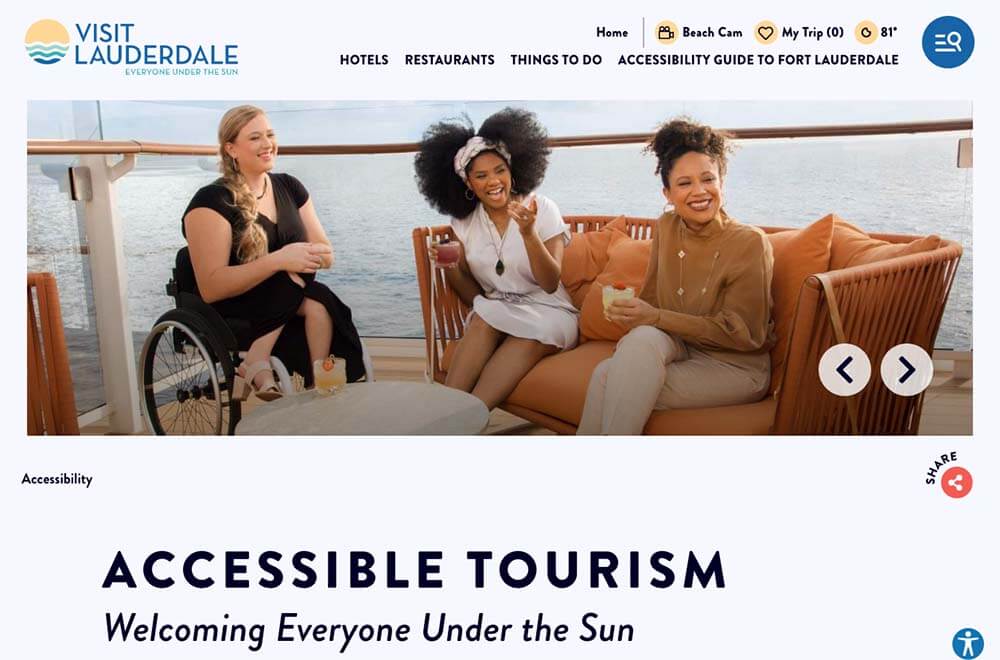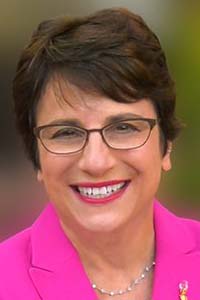
Visit Lauderdale is one of the DMOs to launch an accessibility page or micro site on their websites.
Navigating a new city is challenging. Navigating a new city while looking for venues and meeting spaces that are accessible for individuals with mobility, vision, hearing, and cognitive disabilities — without a guide or directory — is even more challenging. There’s a lot at stake here: Having a reliable accessibility roadmap can make all the difference between a safe and welcoming travel experience and an isolating one.
This summer, two DMOs, Visit Lauderdale and Experience Columbus, launched accessibility pages on their websites to make it easier for visitors with disabilities to plan their stay, as well as for event organizers to book inclusive locations for their events.

Richard Gray
“Right on our homepage you’ll see at the top: ‘Inclusion and Accessibility,’” said Richard Gray, Visit Lauderdale’s senior vice president of inclusion and accessibility. “It’s important for it to be visible. People can come to our page and they’re right there — they don’t need to dig around for five minutes to find information.”

Roger Dudley
Experience Columbus built a page dedicated to accessibility by consulting with accessible design, universal design, and disability inclusion expert Rosemarie Rossetti, Ph.D., who determined just how accessible locations around the city actually were. To help launch the guide, Rossetti, who is a wheelchair user, helped the Experience Columbus team “identify some key places that she knows, just by living in the Greater Columbus area, are doing well [accessibility-wise], just as a baseline,” said Roger Dudley, senior director, community and customer engagement for Experience Columbus.
Rossetti, who will continue to work with local businesses to make accessibility a priority, also created a detailed blog post about accessible meetings to help planners and attendees have the most inclusive meeting experience. “For event planners, it has a checklist to help with some of those key elements, such as [varying] table heights and setting a few tables with missing chairs for those who might be in a wheelchair or scooter,” Dudley said.
Gray said destinations prioritizing issues like accessibility could be an important step in making the events industry more inclusive. “I would like to see meeting planners talk more about it, and when they’re visiting destinations, have a more aggressive checklist so that they’re covering all different people’s needs,” he said. “It’s emerging, there’s no doubt about it. We’ve just got to implement change. If destinations take the lead and meeting planners can say, ‘Well, this is what Fort Lauderdale does [for accessibility],’ I think that’s good.”

Rosemarie Rossetti
Accommodating All
In her accessible meeting blog post for Experience Columbus, accessibility expert Rosemarie Rossetti, Ph.D., details key information for event organizers to collect during the registration process, such as: Does the registrant have hearing loss or impaired vision? Do they need a wheelchair-accessible vehicle to transport them to off-site locations? Will they need to rent a scooter while at the convention center? “Get more details regarding the special services they need,” she writes. “Reassure them that you plan to provide top-notch service to accommodate them.”
READ Rossetti’s accessible meeting post here.
Casey Gale is managing editor of Convene. Ascent is supported by the PCMA Foundation.
